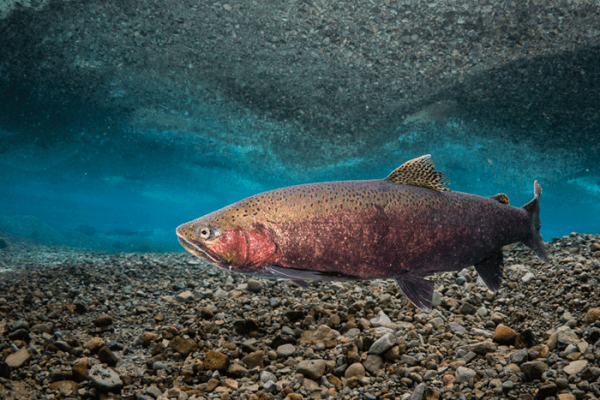New Oregon State University research shows that warm-water habitats can be critically important for the survival of cold-water fish such as trout and salmon.
In the midst of climate change, this research has important implications for habitat protection and restoration efforts, which traditionally prioritize cold bodies of water instead of those that heat up during summer months, the researchers said.
“We show in this paper by devaluing habitats that are warm in summer we miss their critical functions at other times of year,” said Nick Hahlbeck, who conducted the research as a doctoral student at Oregon State. “In this case, the habitat that would be written off provides almost all of the energy needed for growth and reproduction that is expressed at other times of the year.”
The research, recently published in the journal Conservation Biology, was conducted in Upper Klamath Lake in southwestern Oregon. That site is important because at present it is an example of what scientists fear will happen to other water basins as the climate continues to warm, researchers said.
“The lake is 80 degrees Fahrenheit in summer and neon green with algae blooms that can kill even the toughest fish species. It is the opposite of what we think of as trout habitat,” said Jonny Armstrong, an ecologist at Oregon State and co-author of the paper. “This research shows that habitat that is nasty in summer can be critically important during other seasons.”
Read more at: Oregon State University
Redband trout underwater (Photo Credit: Jason Ching)


